On Saturday, January 28th, Grand Valley State University Esports club collaborated with CTC for an esports workshop. This included tweens and teens being mentored by some of the GVSU esports club members on the games Rocket League and Super Smash Bros. The kids had a lot of fun, but what we noticed was that the caregivers had a lot of great questions and discussion points regarding esports.
As esports explodes in popularity, it’s no wonder caregivers are curious about what gaming looks like and means for the futures of their kids. Riley Long (GVSU Esports Coordinator) spoke to some CTC caregivers/families about general esports, as well as scholastic esports, a category of esports and how it is involved in the schools. Esports is currently offered at the High School and Collegiate level in a variety of ways. It was presented that over 88% of teens have access to a video game, whether it’s on a cellphone or a desktop computer. Gaming as a whole is extremely popular among both boys and girls, with over 95% of each having some sort of exposure to gaming. With all these facts and figures, esports can be a little overwhelming. Luckily, esports as a space is very inclusive and welcoming of all levels, including those with disabilities. Below are some of the questions that caregivers asked and the answers that followed.
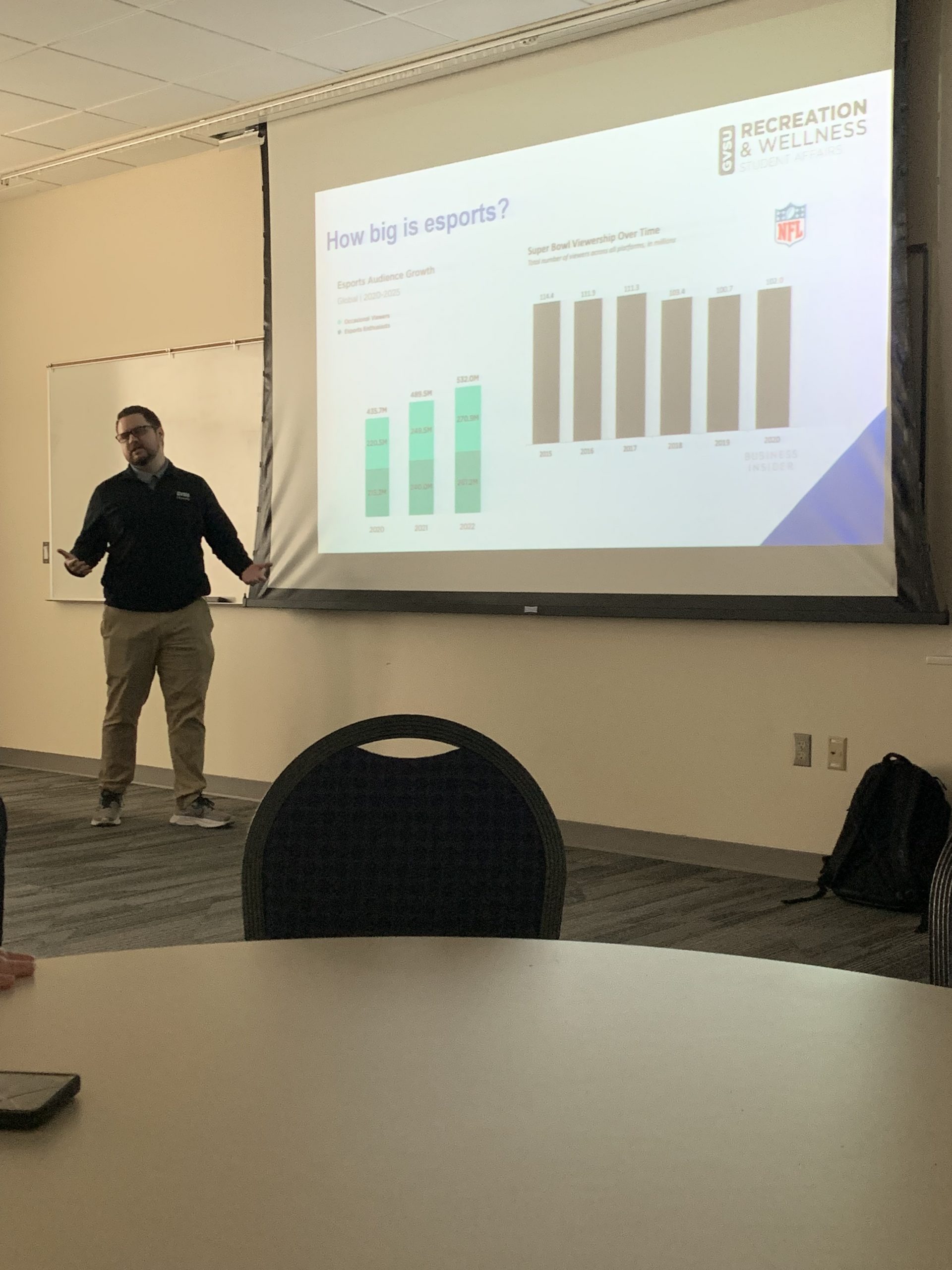
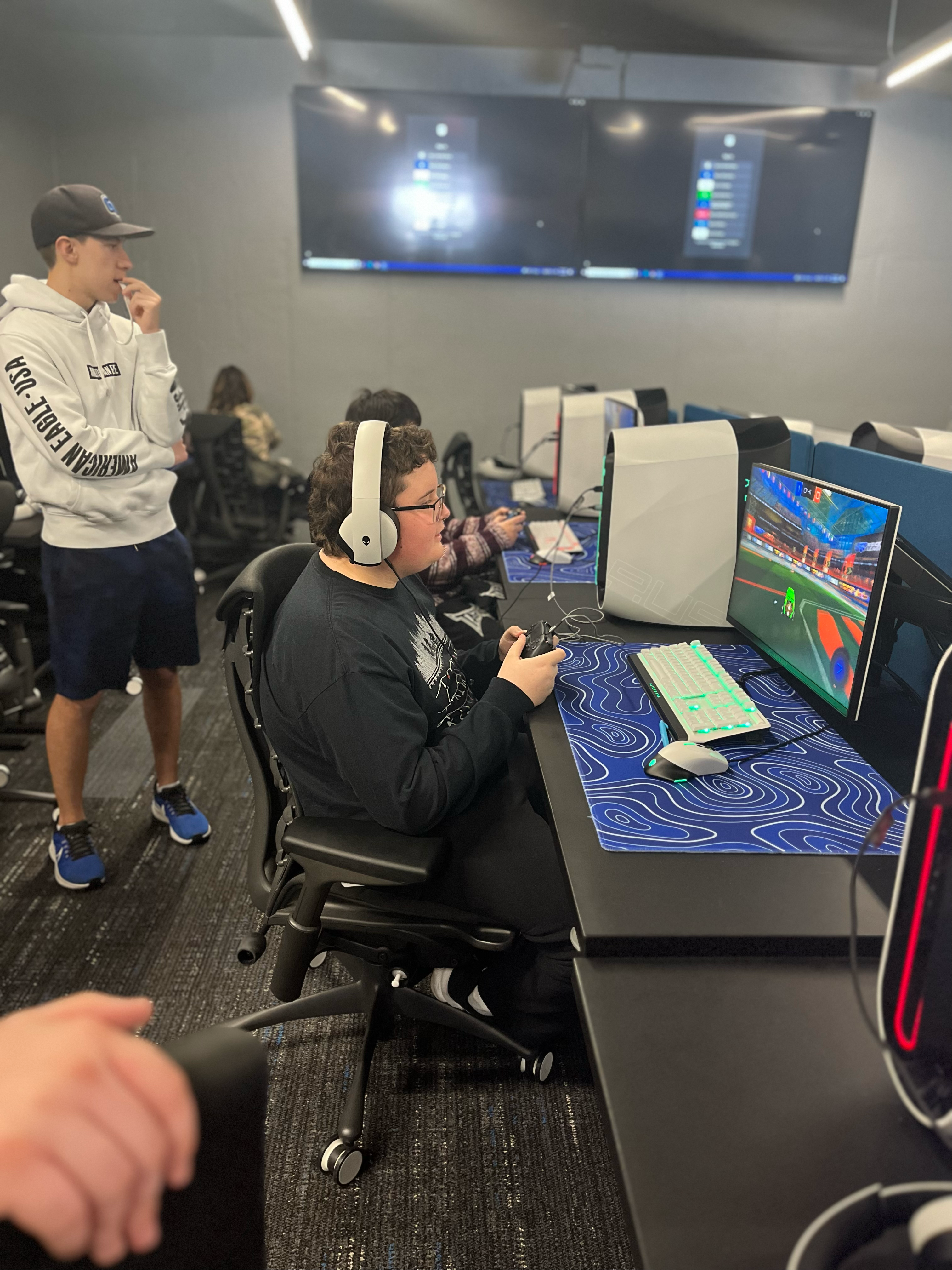
Q: Is esports inclusive to beginners or those not yet skilled in the game?
A: Absolutely, however it is important to delineate esports from general online culture. We know that with the rise in popularity with the internet, there is an increased risk of cyberbullying. However, esports at the high school and college level are organized clubs or teams. This lends itself to a lot of accountability and the teams consistently working together to improve team work, communication, and including all. With the structure of these teams and groups, there’s usually an adult or coach involved to also make sure the culture of the team is positive and inclusive.
In short, yes, esports is inclusive of all levels and welcomes anyone willing to try it out.
Q: Can students with disabilities participate in esports?
A: Absolutely! A wide range of individuals have played games at all levels. Video games are unique in that a lot of features can be modified and accommodations can be made. For example, there are adaptive controllers for individuals who may have physical disabilities. Esports also is conducive to students who otherwise would not participate in extracurricular activities, such as traditional athletics.
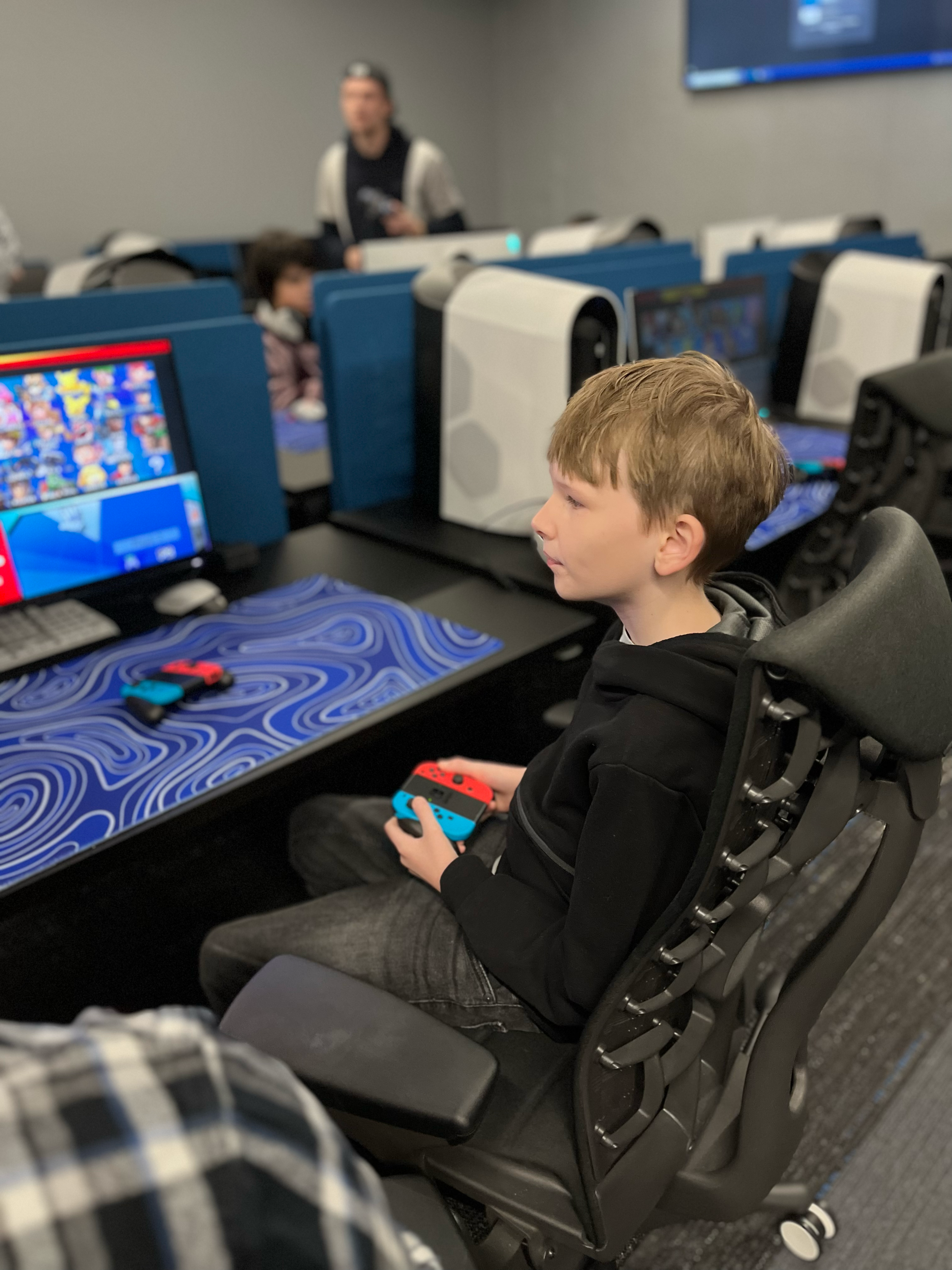
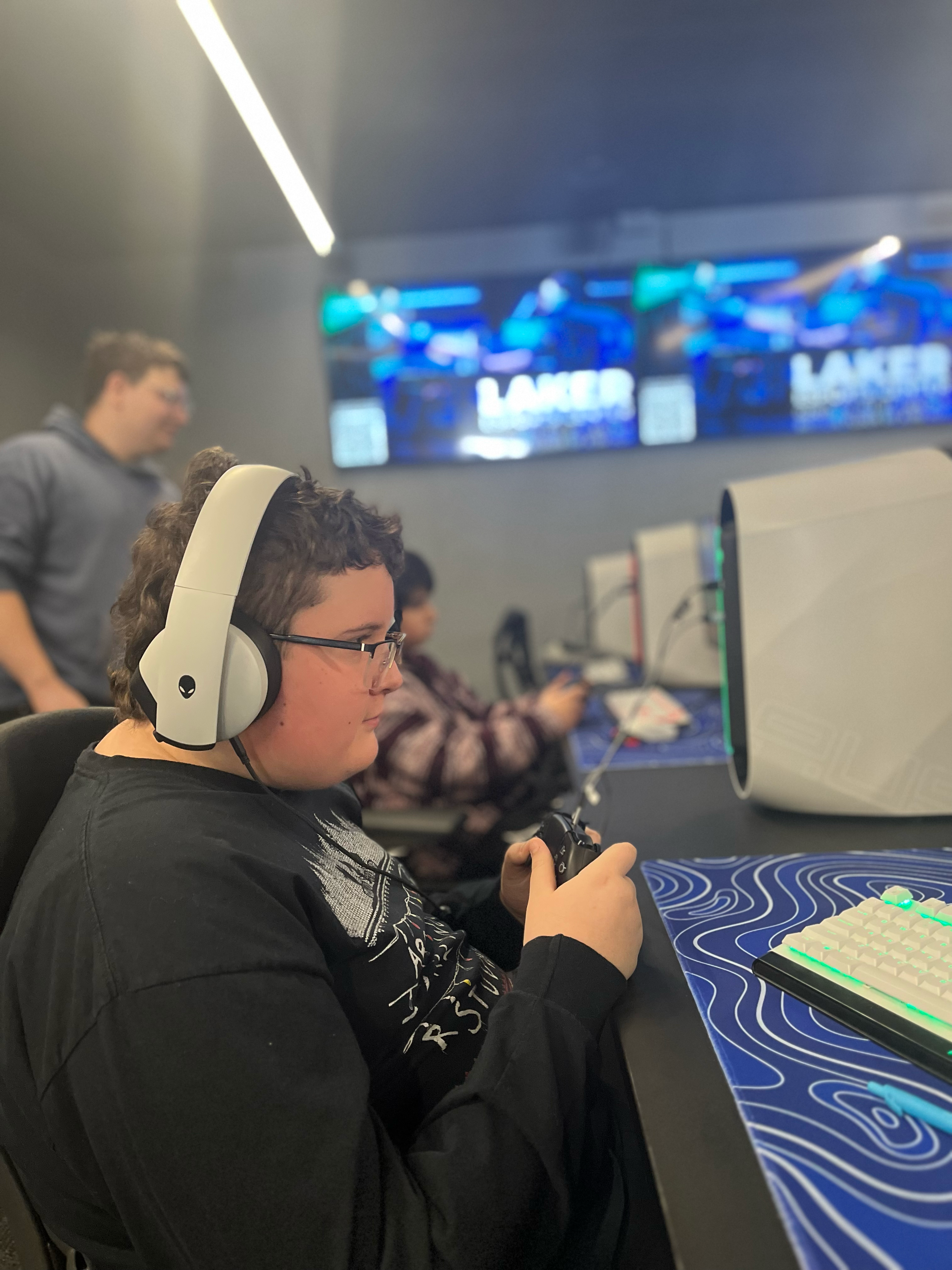
Q: How can my student get involved in esports if their school doesn’t currently offer esports programming/clubs?
A: The student may have to take initiative on this. Usually to get a high school esports club or program off the ground, you need interest in esports and a teacher/staff member willing to participate. Even if your school doesn’t have a computer lab or computers to use, your student’s school could collaborate with community resources such as the library or local college/university. The evidence is there, esports programming will include more students who might not otherwise participate in school events/activities.
The next esports workshop is scheduled for March 25th. It is on GVSU’s campus, right in the Kirkof building. We are excited to continue and grow this program, and will also be offering a caregiver information session and discussion while the kids get to learn to play collaboratively!
Written by Sarah Long, MA, CCC-SLP (she/her) Department Head, Speech-Language Pathologist

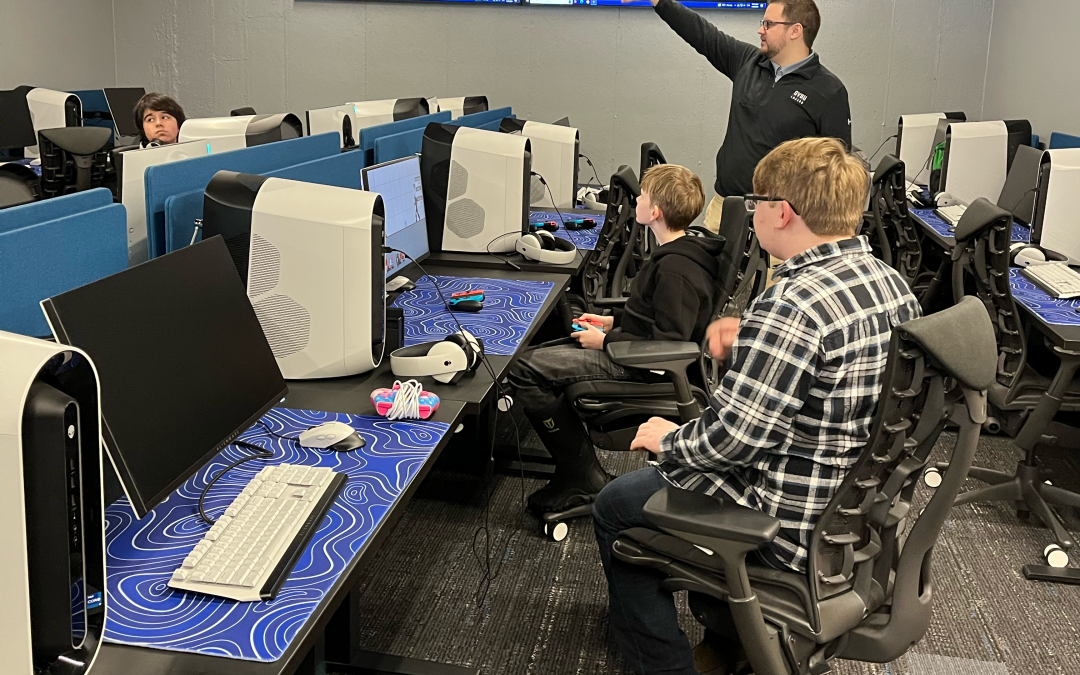
Recent Comments